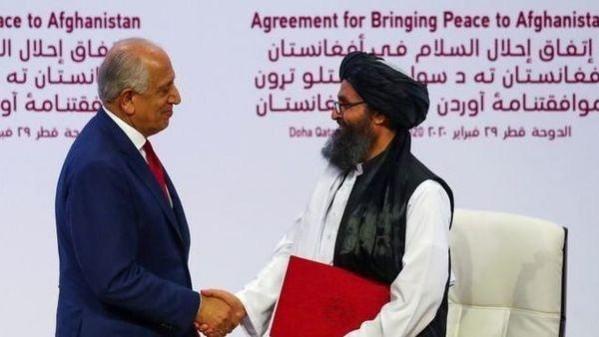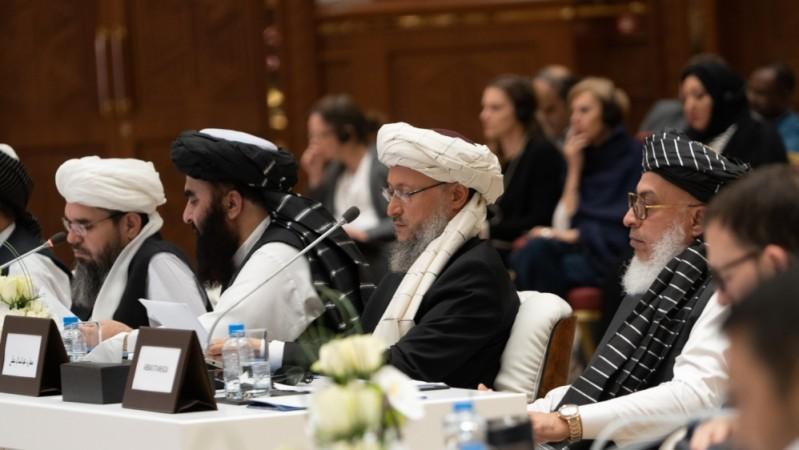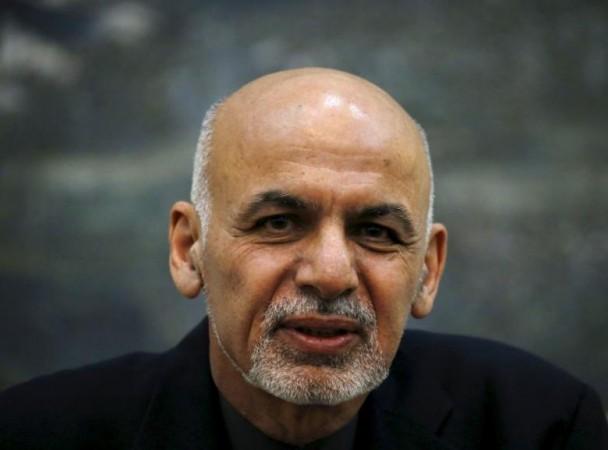Afghanistan's Presidential Office on Monday refuted reports claiming that President Ashraf Ghani have refused to let peace talks move any forward even though the Taliban and government negotiators reached a tentative agreement on the talks' guiding principles during their recent meetings in Doha.
Quoting some Afghan officials, last week, The New York Times reported that Ghani is in no mood to settle for the peace talks, a move which has brought analysts and experts to a related concern that the peace process may further get stalled despite nearing an apparent breakthrough after months of efforts.

However, pushing back on the claims, some officials from Ghani's government immediately insisted that certain details were still needed to be worked out and that no agreement had been reached so far. These officials also asserted that the Taliban were pressured by the Western officials to signal a breakthrough.
In a statement on Monday, Sediq Sediqqi, an Afghan presidential spokesman, said that Ghani was "steadfast in his resolve to make the peace talks succeed and that "some of the views" in this Times article were "unwarranted and baseless," but he did not elaborate further.
"At this stage the whole process has shifted to both sides' convincing an international audience that the other side is disingenuous," said Ibraheem Bahiss, an independent Afghan research analyst. "But long term, it could strengthen the hand of those within the Taliban that advocate for a military solution and view the current process as fruitless."
The Intra-Afghan Negotiations

The Taliban announced, last week, on social media that both sides had agreed to the nearly two dozen points under discussion earlier this month — a framework for how talks would go forward, including points of protocol and how issues would be presented.
"The procedure of Intra-Afghan negotiations between the negotiating teams was completed and finalized in 21 articles on the 15th of November 2020," tweeted Mohammad Naeem, a spokesman for the Taliban.
American and Western diplomatic officials have not publicly responded to the breakdown. But people with direct knowledge of the talks in Doha, Qatar, have described diplomats as being frustrated with Ghani's stance, and have suggested that the government negotiating team has been functionally split between loyalists to Ghani and other officials who are frustrated with him, the NYT report said.
The introductory talks, which opened in hope and spectacle in Qatar in September, have unfolded over months of brutal violence back in Afghanistan. The Taliban have intensified their offensives in crucial provinces, leading the government to accuse the insurgents of holding the talks hostage with their violence.
Ghani's version of sustainable peace

There may be a major crucial reason that Ghani and his aides are digging in, as well, the report added. But, on the other hand, Ghani's own personal insecurity over holding on to the presidency of the war-torn country post the signing of the deal can also not be dusted under the carpet.
Ghani may also see the delay as a calculated move in the hope that the incoming Biden administration might either change course on the continuing U.S. troop withdrawal or alter its approach to overseeing the peace negotiations.
In March, this year, Ghani also objected to the release of 5,000 Taliban prisoners, saying that his government had not agreed to a clause set out in the deal. The arrangement was a condition for direct talks between the Taliban and the Afghan government, which the former calls a 'puppet regime' and refuses to sit down with.
Moreover, Pakistan Prime Minister Imran Khan's maiden visit to Afghanistan and hold a meeting with Ghani was enough to inflame an already tensed relationship between the two direct parties of the Afghan reconciliation deal.
Ghani's resistance to the talks has pushed the United States and the European Union to push harder for the immediate staffing of the organization charged with leading the talks, the High Council for National Reconciliation, led by Abdullah Abdullah, who has yet to weigh in definitively on the current situation.
Abdullah, who has been Ghani's opponent in two bitter and contested presidential elections, was appointed to lead the council following his decision this year to concede the presidential election to Ghani and negotiate a power-sharing agreement earlier this year.
Abdullah has the ability to guide the talks absent Ghani's office, but the council remains unfilled. And Abdullah's public absence during this chapter of the negotiations has only confused Western officials who are patiently waiting for him to take a more dominant role in the talks, officials said.














